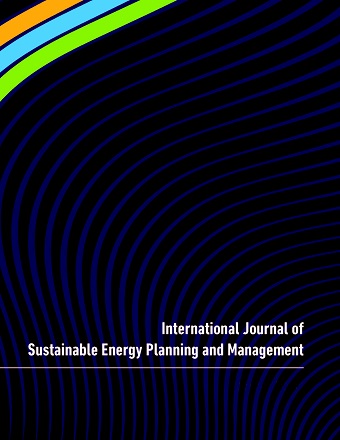Time aggregation techniques applied to a real-life sector-coupled capacity expansion model
Main Article Content
Abstract
Simulating energy systems is vital for energy planning to understand the effects of fluctuating
renewable energy sources and integration of multiple energy sectors. Capacity expansion is a pow-
erful tool for energy analysts and consists of simulating energy systems with the option of investing
in new energy sources. In this paper, we apply clustering based aggregation techniques from the
literature to very different real-life sector coupled energy systems. We systematically compare
the aggregation techniques with respect to solution quality and simulation time. Furthermore,
we propose two new clustering approaches with promising results. We show that the aggregation
techniques result in consistent solution time savings between 75% and 90%. Also, the quality of
the aggregated solutions is generally very good. To the best of our knowledge, we are the first
to analyze and conclude that a weighted representation of clusters is beneficial. Furthermore,
to the best of our knowledge, we are the first to recommend a clustering technique with good
performance across very different energy systems: the k-means with Euclidean distance measure,
clustering days and with weighted selection, where the median, maximum and minimum elements
from clusters are selected. A deeper analysis of the results reveal that the aggregation techniques
excel when the investment decisions correlate well with the overall behavior of the energy system.
We propose future research directions to remedy when this is not the case.
Article Details
Articles published in International Journal of Sustainable Energy Planning and Management are following the license Creative Commons Attribution-NonCommercial-NoDerivs 3.0 Unported (CC BY-NC-ND 3.0)
Authors retain copyright and grant the journal right of first publication with the work simultaneously licensed under a Creative Commons Attribution License: Attribution - NonCommercial - NoDerivs (by-nc-nd). Further information about Creative Commons
Authors can archive post-print (final draft post-refereering) on personal websites or institutional repositories under these conditions:
- Publishers version cannot be stored elsewhere but on publishers homepage
- Published source must be acknowledged
- Must link to publisher version

